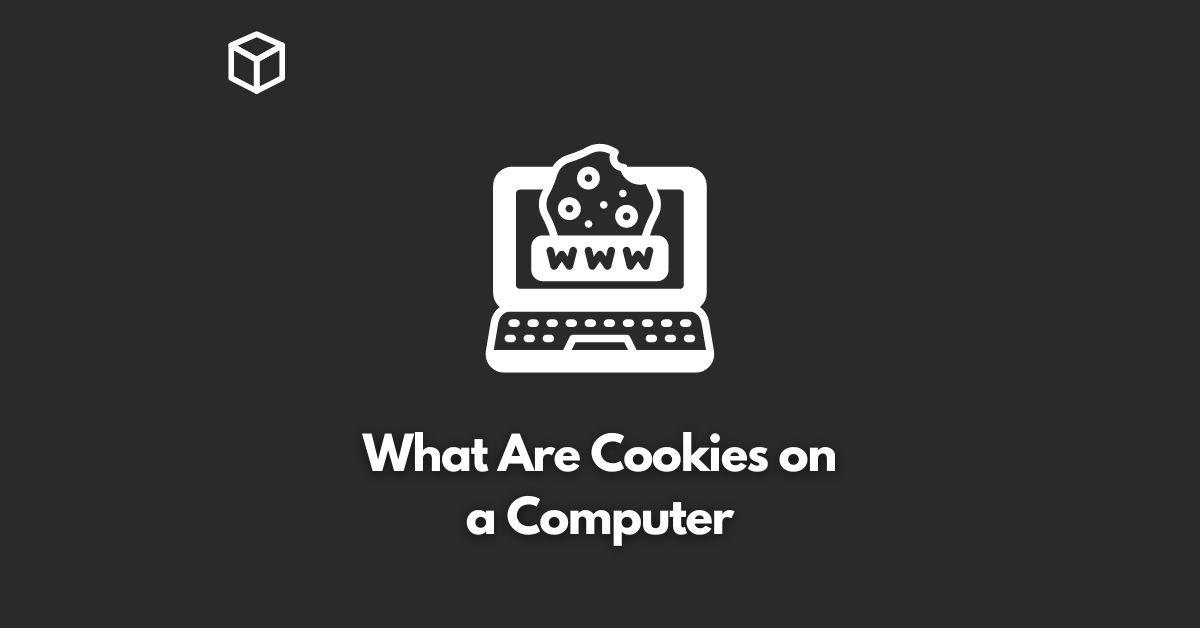Computer cookies, also known as HTTP cookies or web cookies, are tiny text files that are stored on your computer by a web server when you visit certain websites.
They are designed to hold a modest amount of data about you and your browsing preferences, so a web server does not have to continually request this information, which could otherwise potentially slow down your browsing speed.
Cookies are typically used to store personal registration data like your name and address, the contents of your shopping cart, your preferred layout for a web page and other details about your current interaction with the site.
Their primary function is to make it easy for web servers to customize information to fit your specific needs and preferences when you’re visiting a website.
Origin of the Term ‘Cookies’
The etymology of the term ‘cookie’ in the context of web browsing is subject to various theories.
Some believe that the term came from “magic cookies,” which are a component of the UNIX operating system.
On the other hand, another explanation points to the fairytale of Hansel and Gretel, who left a trail of cookie crumbs behind them to find their way out of a dark forest.
The concept of cookies in the virtual world works similarly, marking the trail of a user’s journey across the internet.
Safety and Privacy Concerns Regarding Cookies
Cookies, in their basic form, are entirely harmless. They are simple text files that cannot execute programs, carry out tasks, or extract data from your hard drive.
Cookies are also bound by a “same-origin” policy, which means they can only be accessed by the server that created them.
This prevents one web server from snooping around in cookies set by other servers, thereby protecting your personal information.
However, certain websites and search engines use cookies to track users’ online activities, gathering highly personal information and often transferring this data to other websites without explicit consent or warning.
This practice has led to debates about web privacy and concerns about how cookies are used by advertisers.
Differentiating Between First-Party and Third-Party Cookies
While both first-party and third-party cookies are stored on your computer and serve similar purposes, their difference lies in who creates them and how they are used.
A first-party cookie is created by the website you’re visiting, helping the website remember information about your visit, like your preferred language and other settings. This can make your next visit easier and the website more useful to you.
In contrast, third-party cookies are created by other websites that the site you’re visiting uses. These can be used for online advertising, analytics and other research, making them somewhat more intrusive.
Most modern web browsers offer users the option to block third-party cookies to address privacy concerns.
The Controversial Aspect of Cookies
Internet cookies can be controversial, particularly when they are used by online advertising companies that attach cookies containing a unique user ID to banner ads.
These ad companies can serve ads to thousands of different websites, giving them the ability to retrieve their cookies from all these sites. This raises concerns about third-party cookies and potential invasion of privacy.
However, not all tracking is harmful. When used within a website, data from cookies can help site owners enhance their website design, improve popular areas and redesign ineffective parts for a more efficient user experience.
Tracking data can also offer targeted information to users and site owners, making recommendations based on user behavior. An example of this is Amazon’s feature of suggesting new products based on your past browsing and purchasing history.
To Disable or Not to Disable Cookies
The decision to disable cookies depends on how you want to use the web.
Websites that offer extensive personalization won’t be able to deliver this personalized experience if you disable cookies. On the other hand, if you have privacy concerns, you can choose to restrict or block cookies.
For a middle ground, you can implement a partial stop on web cookies by setting browsers on a high sensitivity level, prompting you whenever a cookie is about to be set and allowing you to accept or reject them on a case-by-case basis.
Managing Cookies
There are various ways to manage cookies in your browser, ranging from accepting all cookies to using the web without storing any cookies.
If you want to browse the internet without storing cookies, you can use a web proxy or private browsing mode.
Alternatively, if you want to benefit from cookies but also want to keep a check on your privacy, you can manually delete them after your session, or clear cookies for one specific site, leaving the others unaffected.
To see which cookies are stored in your browser, you can check your browser settings.
For instance, in Chrome, you can enter chrome://settings/content/all in the address bar to directly access these settings.
The Evolution and Impact of Cookies
Cookies were initially designed to enhance the web browsing experience by delivering highly customized, personal web pages. Popular sites like Amazon, Google and Facebook use them to provide targeted content to users.
However, some websites and internet advertisers have found ways to use cookies to gather sensitive personal information, leading to concerns about targeted advertising and potential privacy invasion.
Despite these issues and concerns, cookies offer numerous benefits that make web browsing more convenient and efficient. They aren’t inherently dangerous or malicious, but how they are used can impact your online experience and privacy.
Remember, it’s essential to understand how cookies work, how websites use them and how you can manage them effectively to balance convenience and privacy.
While cookies are an integral part of modern web browsing, user awareness and control are key to ensuring a safe and personalized browsing experience.




